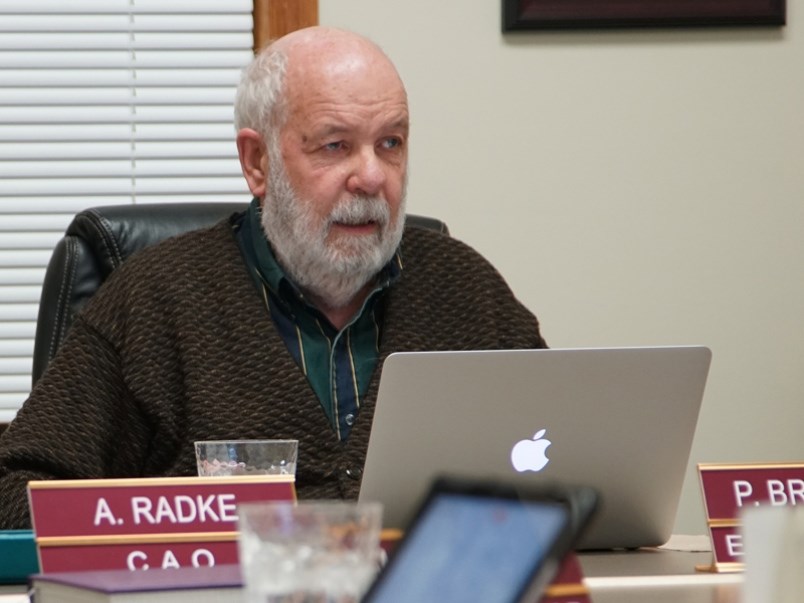qathet Regional District (qRD) has passed its 2020 to 2024 financial plan bylaw, showing an operating budget of $19.2 million. This represents a net operating budget of $11.4 million and total capital spending of $6.1 million.
At the March 30 regional board meeting, directors gave the budget bylaw first reading to final adoption.
On third reading, Electoral Area B director Mark Gisborne expressed concerns about the budgetary process in light of the COVID-19 pandemic.
“We need to sit down and go through this with a fine-toothed comb to figure out how we can be more flexible in future,” said Gisborne.
City director George Doubt, who chairs the regional district finance committee, said the financial plan directors were voting on was in its last day of adoption, according to the laws of the land. He said what was before the board was the 2020 to 2024 financial plan bylaw, a long-range financial plan of items that financial advisors and staff are recommending the board be prepared for in the next five years.
“It’s not a knee-jerk reaction to what is happening this month or the next few months,” said Doubt. “It’s a long-term financial plan and that’s the information we have in front of us. The board will have the opportunity to react to circumstances as they develop through the year with this budget. It’s reasonable to consider the financial plan for five years based on what you know and what you reasonably expect to happen over the long term.
“Any other adjustments to that can happen and I think this board is fully capable of bringing those issues up and addressing them when they come in front of the board.”
Electoral Area E director Andrew Fall said what the board was voting on was the tax rate and the main revenue coming from the main high-level budget.
“Even though we’ve approved of the detailed budget, I believe there is the ability to adjust the budget through amendments as needed,” said Fall. “What we are really limited to is the tax rate. Once we set a tax rate we can’t modify that.”
Manager of financial services Linda Greenan said Fall is correct. She said as for the budget itself, details can be amended at any time.
Fall said he understands the concerns raised by Gisborne and does think the regional district has a lot of risks looking forward. Fall said the problem is uncertainty.
“We do not have the knowledge to know what to do so the budget reflects our best knowledge right now,” added Fall. “A lot of work went into it and I think it’s a very good budget. Going forward, as we learn more, we will see the things we need to adjust and adapt. Right now, we just don’t know. Our best option is to go forward with it. Issues will arise when they arise.”
Gisborne opposed the financial plan at all readings.
After adoption of the budget, chair Patrick Brabazon said: “We have a financial plan.”
qRD successfully obtained $5.3 million in grants to assist with several planned projects. Capital projects planned for 2020 include continuation and expansion of the FireSmart program, and capital projects such as the resource-recovery centre, Northside fire hall, Lund sewer outfall renewal and upgrades to Lasqueti Island and Savary Island fire departments.
According to a presentation at the qRD finance committee on March 18, in the City of Powell River, the change in tax requisition from 2019 to 2020 is 14.36 per cent, or $6.47 per $100,000 of taxable value on property and improvements.
In Electoral Area A, the change in requisition between 2019 and 2020 is 9.75 per cent, for an increase of $15.16 per $100,000.
On Savary Island, the increase is 10.65 per cent, for an increase of $5.81 per $100,000.
In Electoral Area B, the increase is 11.30 per cent, for an increase of $6.79 per $100,000.
In Electoral Area C, the increase is 5.29 per cent, for an increase of $4.48 per $100,000.
In Electoral Area D, the increase is 12.48 per cent, for an increase of $0.57 per $100,000.
In Electoral Area E, the increase is 11.47 per cent, for an increase of $27.60 per $100,000, less $75.95 parcel tax.
After the regional board meeting, Brabazon said he thinks the budget is acceptable under the circumstances.
“These are exceedingly trying times and I won’t be surprised if we have to make adjustments later on,” said Brabazon. “I would expect that the board would be willing to do so.”
In terms of the increases in property taxation, Brabazon said the regional board is doing the best job it can under the circumstances, bearing in mind that there may be some adjustments that need to be made in spending in the coming year.



